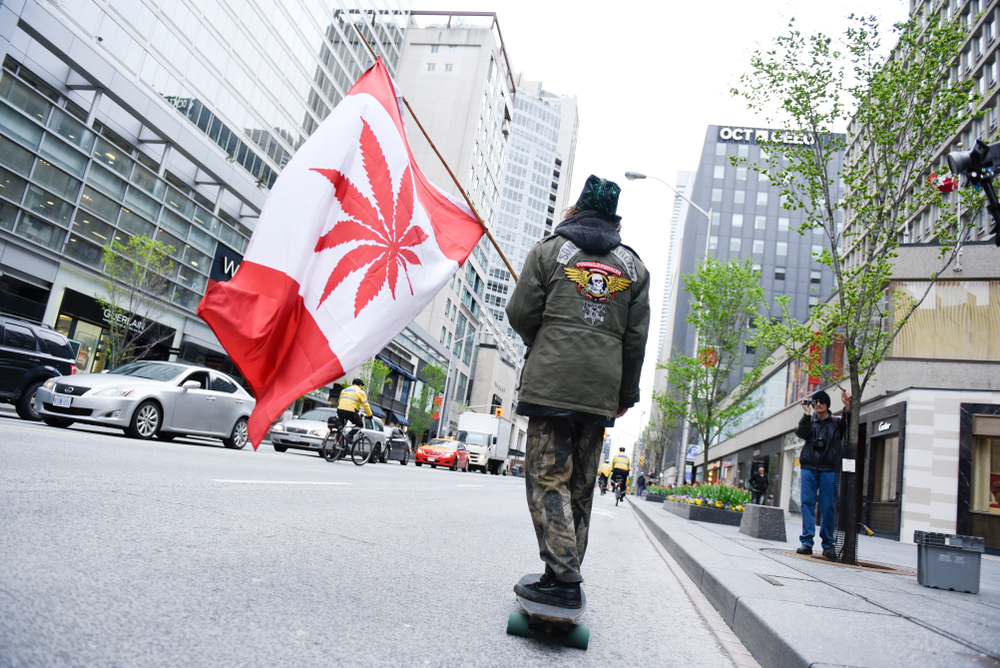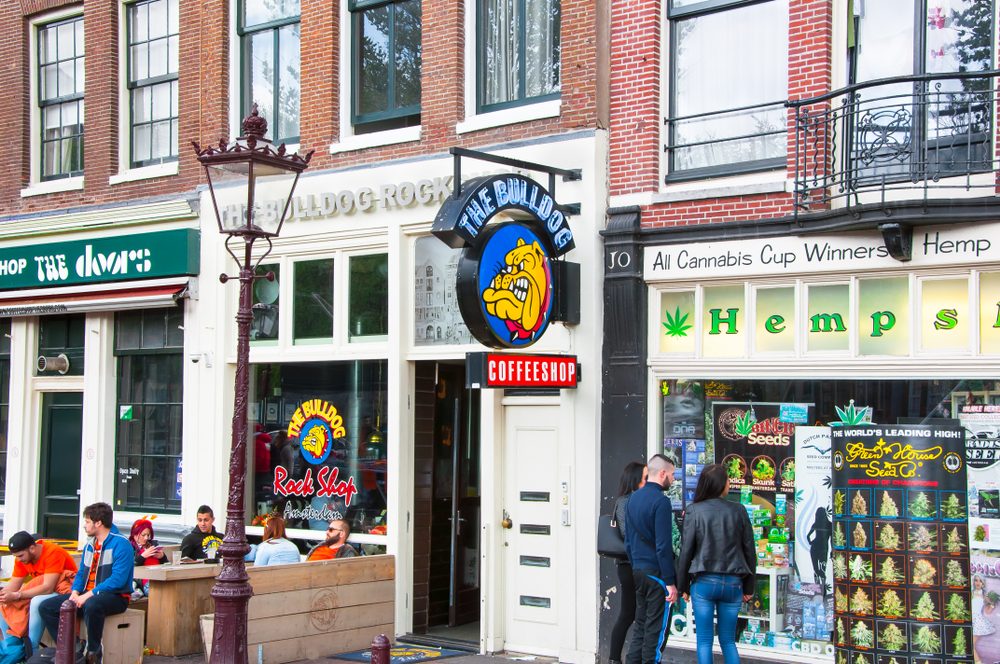Culture
Cannabis Tourism – A Budding Industry
With cannabis legalized in Canada in 2018 through the Cannabis Act and Cannabis 2.0 legislation released a year later in 2019, concerning distribution and regulation surrounding weed edibles, concentrates and topicals, cannabis tourism remains a promising industry, albeit still in its infancy.
Whether you like it or not, weed is here to stay, and as the industry matures and expands, so too do retailers, product manufacturers, and growers. With that, pot-friendly destinations have started to become an attraction for tourists across the globe.
In this way, innovative and daring businesses have been testing the proverbial waters of catering to tourists wanting to get in on the legal weed action.
But what exactly is cannabis tourism, and why is it becoming so popular?
What is Cannabis Tourism?
Cannabis tourism is the concept of encouraging and green-lighting (get it?) those who wish to visit particular destinations to partake in weed-centric activities.
Because of the many suggested psychological and physical benefits of medicinal marijuana, more and more people are on the hunt for places they can travel to and enjoy their weed.
Understandably, this has significantly increased the demand for cannabis-friendly lodging options, leading to the creation of the “cannabis tourist.” They come from worldwide to partake in wellness retreats, party buses, outdoor adventures, yearly 420 friendly events, historical guides, puff and paint classes, dispensary tours, and even networking events to mingle with professionals currently working in the industry.
Basically, these travellers seek to enhance their typical travel experiences and take them to an entirely new level by integrating or solely focusing their plans to incorporate their favourite icky sticky into the mix, suggesting that it adds a unique element to their adventures.
We’re inclined to agree. Here’s why.
What are the Benefits of Cannabis Tourism?

Locales that welcome weed use are on the up and up as cannabis tourism continually increases. In fact, in the United States, cannabis tourism is growing exponentially, attracting thousands of people and billions of dollars to legal states like Colorado, Washington, and California.
Colorado alone saw a 51% increase in cannabis tourism in 2014, and, according to the Colorado Department of Revenue, legalizing wacky tobacky brought in an estimated 6.5 million cannabis tourists in 2016.
All in all, the state has racked in over 5.2 billion dollars since Colorado legalized pot in 2014, which has been extremely advantageous for the local economy. The financial impact of legal marijuana is estimated to increase by 223% between 2017 – 2022.
It just goes to show that investing in one green will earn you another.
Not only that, but Colorado discovered that the larger the tourist area, the more weed sales, which leads to higher sales tax revenues for the state. For the first time in history, cannabis sales beat out alcohol sales in Aspen, and Colorado towns that shared a border with a non-legal state saw significantly higher cannabis tax revenues than non-border towns.
Another excellent example of the benefits of cannabis tourism extends to Nevada, which is ahead of the curve when it comes to cannabis tourism. Even though weed use is illegal to consume or sell on the Vegas Strip, it raked in an estimated $70 million for the state, exceeding projected expectations by a whopping 25%.
This gave rise to the state to start considering opening up venues like pot lounges and smoking parlours that make it easier for consumption and help attract tourists.
The numbers within Canada reflect the same sentiment, with Statistics Canada reporting that in just five months after recreational weed was legalized, sales exceeded over a billion dollars.
These statistics only further prove that cannabis continues to perform as a booming industry and that further expanding its reach can only lead to more profits.
What are the Roadblocks?

Since the legalized cannabis industry is still relatively new, many regions haven’t had the chance to tackle or outline a plan of action concerning cannabis tourism.
Because of this, countless businesses within the industry face the gruelling difficulty of having to jump through hoops and navigating numerous hurdles to establish or organize a dedicated space where people can responsibly enjoy weed outside of their homes.
In Canada, many destinations entice visitors with controlled substances such as alcohol by offering scenic wine tastings and fun-loving craft brewery tours. However, the push for cannabis tourism is virtually non-existent. Arguably, it creates obstacles for a massively untapped market due to the still prevalent biases surrounding weed.
So, it seems as though it’s only kegs and barrels that are being tapped for the time being.
While some outlets and destinations are taking matters into their own hands and marketing themselves as cannabis tourism destinations, Canada’s overarching tourism industry is doing little to promote this type of tourism.
The reasoning behind this contains multiple concerns. Firstly, there are strict laws surrounding marketing cannabis. Under the Cannabis Act, it is “prohibited to promote cannabis or a cannabis accessory or any service related to cannabis.”
While there are exceptions granted to this legislation, many destinations and companies do not want to risk it.
There are also concerns surrounding the conflict of promoting weed to destinations where it is still illegal, which comes into play when attempting to entice international visitors.
Additionally, many companies find it challenging to strike a balance between respecting the beliefs and culture of both visiting tourists and local populations regarding cannabis.

It is also important to note that, while a gray market still exists concerning MOMs or mail or marijuana services, it is a long, arduous and tedious process to become a licensed dispensary. Not to mention, policies will vary from province to province.
So, unlike buying a bottle of wine when visiting a vineyard, more obstacles would present themselves should a cannabis tourism destination wish to take “souvenirs” available for purchase for visitors wanting to take home a little piece of their experience.
It would also open the floodgates for all sorts of legal disputes and debates surrounding the genuine possibility of tourists attempting to transport these goods over one or multiple borders.
Cannabis Tourism – Reducing Restrictions
As the stigma surrounding pot use lifts and legalization expands, the long list of restrictions should dwindle down to something more manageable for consumers and business owners alike in the future.
That said, if you’re planning or even merely dreaming of a cannabis-friendly getaway, it’s a good idea to do your research before you venture out.
It doesn’t matter if you’re journeying to Canada, Amsterdam, or a legal state or territory within the US. You’ll want to be well educated about the marijuana laws wherever you want to go, as well as what is required to buy weed from local dispensaries.
You don’t want to waste your time or money going somewhere where you won’t legally be able to buy recreational weed. You also don’t want to be driving around with paraphernalia thinking it’s legal when it could get you arrested.
The jurisdiction you’re in will significantly influence different laws surrounding cannabis legalization, and you don’t want any unwanted surprises along the way.

Cannabis tourism possesses an abundance of potential benefits, much in alignment with already-existing travel attractions. For example, the Okanagan region of British Columbia is renowned for its epic scenery, outdoor activities and stunning vineyards that offer a wide variety of wine-related activities.
In the same way, cannabis tourism would thrive in such an environment. Much like how people travel from far and wide to partake in wine tours of the region, we have no doubts in our mind that if cannabis tourism was more widely accepted and promoted, cannabis outdoor grow farms in BC could rake in substantial profits.
Providing offers for similar activities to winery tours and tastings in the form of “cannabis tours” could be a potential gold, or should we say green, mine when it comes to extending the client pool for the Canadian travel industry.
BC bud already has a worldwide reputation. Why not cash in on it?
Ultimately, time will tell if restrictions will be lifted, but if the prohibition and restrictions surrounding alcohol or tobacco are any indications, we may have to sit tight for a little while longer before cannabis tourism is more widely accepted.
Rest assured, though, when it is, we will be right on that train like a burnt-out soccer mom on a fresh glass of Chardonnay.

